Abstract
In a study of 52 individuals belonging to 35 species or subspecies of passerine birds it was shown that the volume of the hippocampal complex relative to brain and body size is significantly larger in species that store food than in species that do not. Retrieval of stored food relies on an accurate and long-lasting spatial memory, and hippocampal damage disrupts memory for storage sites. The results suggest, therefore, that food-storing species of passerines have an enlarged hippocampal complex as a specialization associated with the use of a specialized memory capacity. Other life-history variables were examined and found not to be correlated with hippocampal volume.
Full text
PDF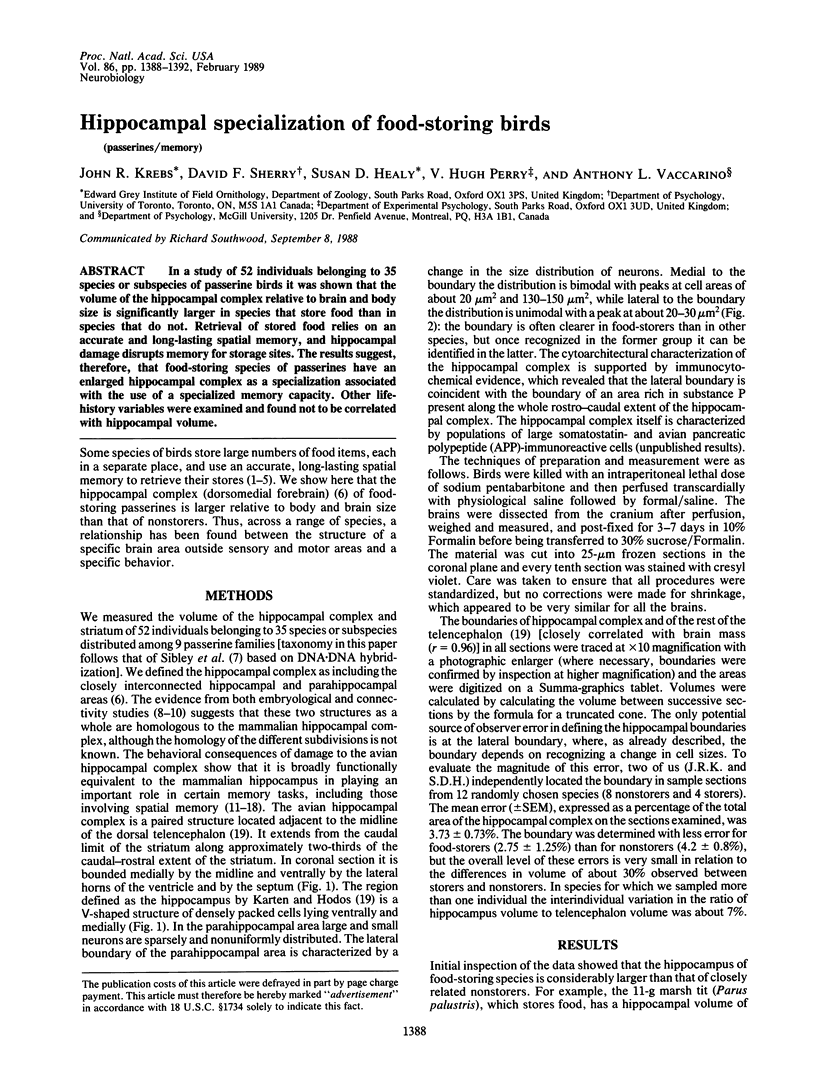
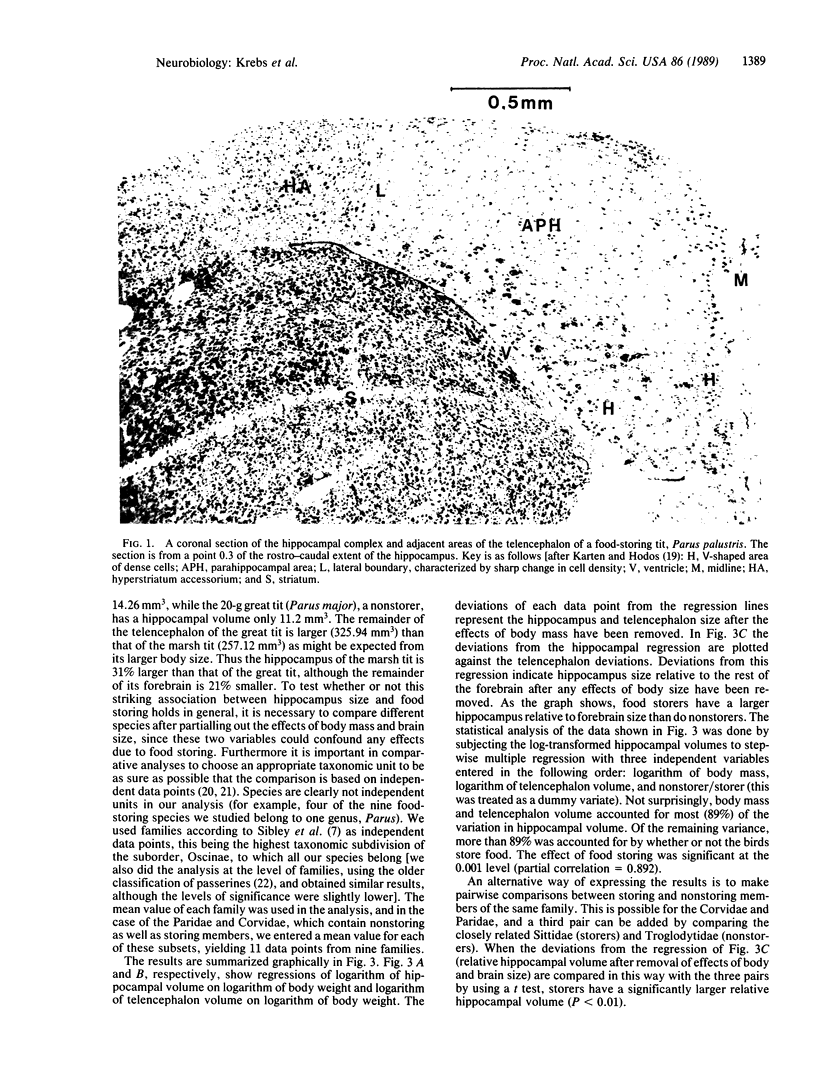
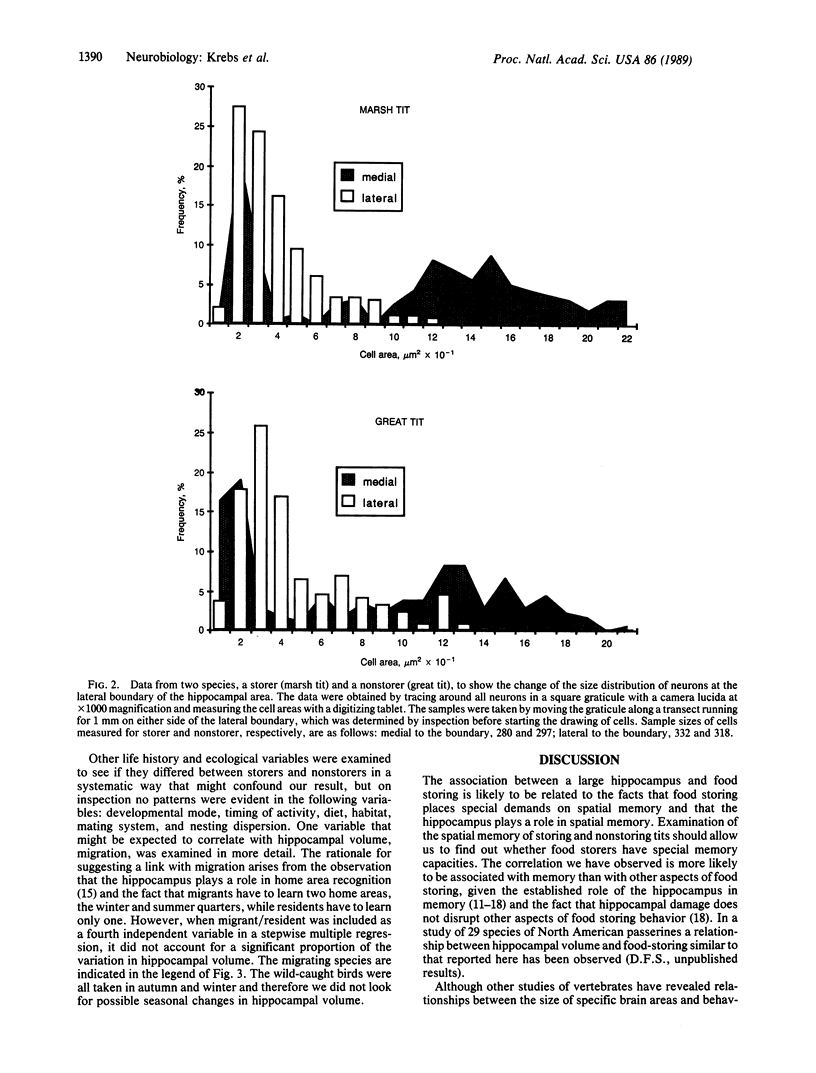
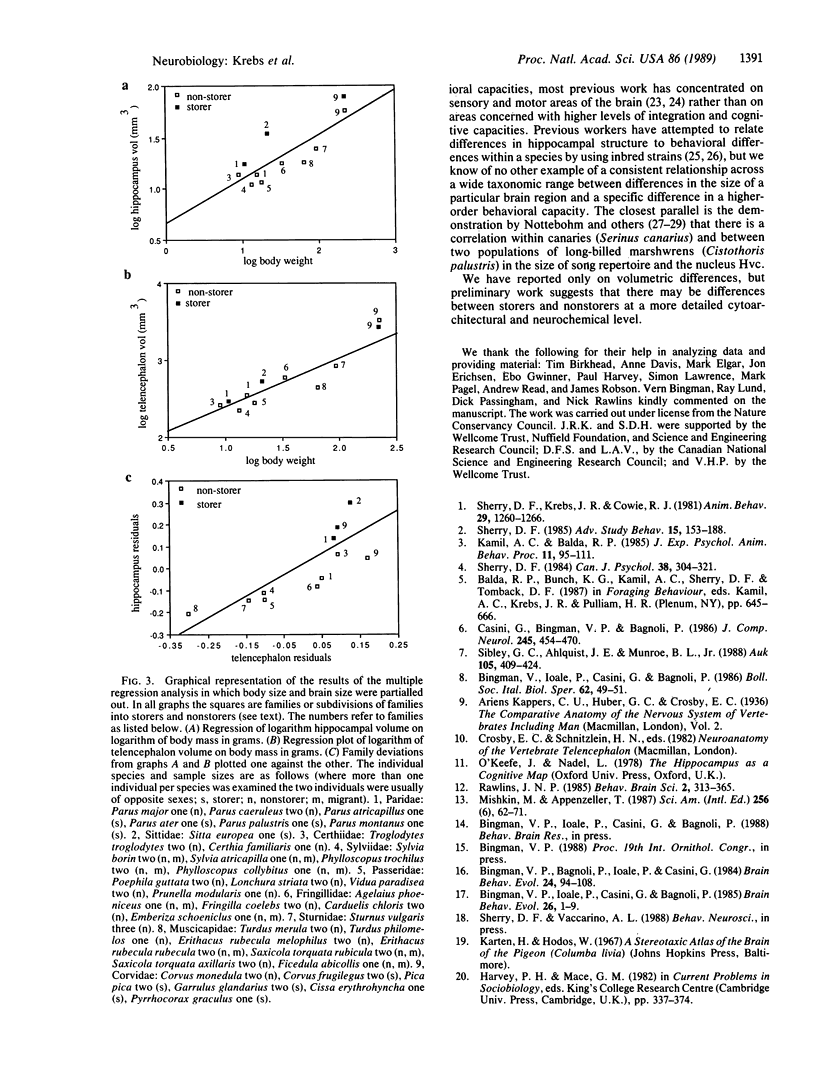
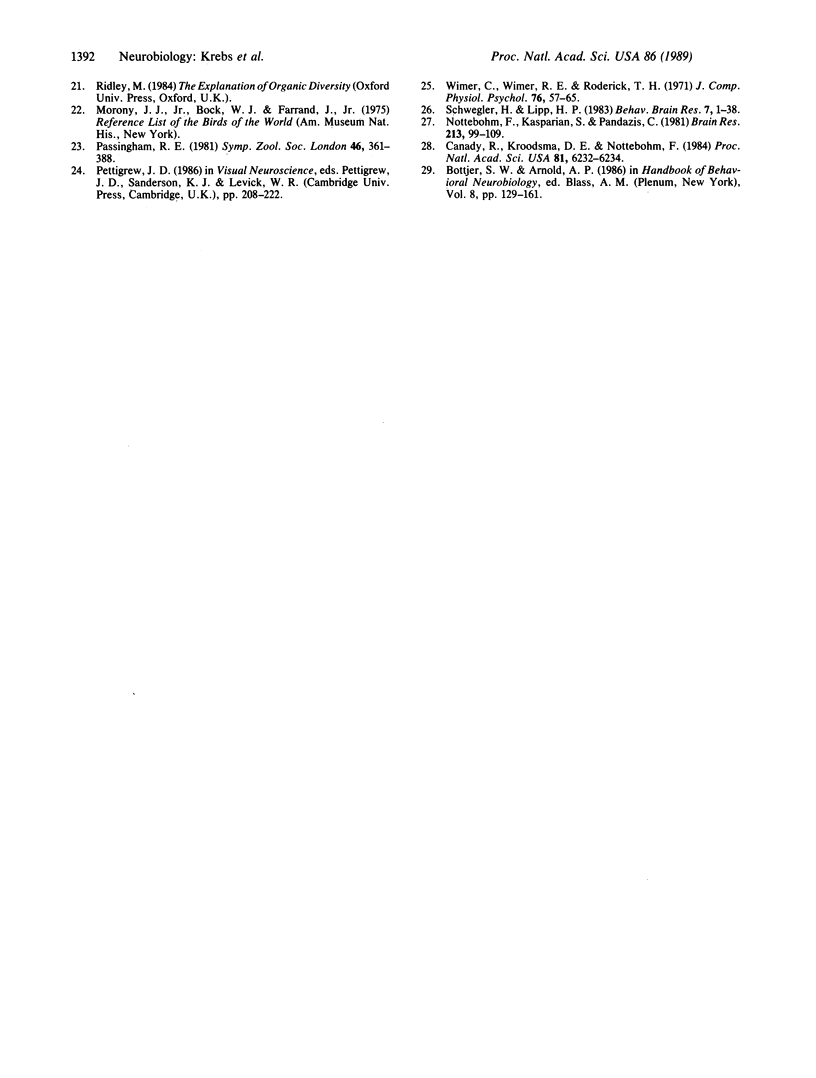
Images in this article
Selected References
These references are in PubMed. This may not be the complete list of references from this article.
- Bingman V. P., Bagnoli P., Ioalè P., Casini G. Homing behavior of pigeons after telencephalic ablations. Brain Behav Evol. 1984;24(2-3):94–108. doi: 10.1159/000121308. [DOI] [PubMed] [Google Scholar]
- Bingman V. P., Ioalè P., Casini G., Bagnoli P. Dorsomedial forebrain ablations and home loft association behavior in homing pigeons. Brain Behav Evol. 1985;26(1):1–9. doi: 10.1159/000118763. [DOI] [PubMed] [Google Scholar]
- Canady R. A., Kroodsma D. E., Nottebohm F. Population differences in complexity of a learned skill are correlated with the brain space involved. Proc Natl Acad Sci U S A. 1984 Oct;81(19):6232–6234. doi: 10.1073/pnas.81.19.6232. [DOI] [PMC free article] [PubMed] [Google Scholar]
- Casini G., Bingman V. P., Bagnoli P. Connections of the pigeon dorsomedial forebrain studied with WGA-HRP and 3H-proline. J Comp Neurol. 1986 Mar 22;245(4):454–470. doi: 10.1002/cne.902450403. [DOI] [PubMed] [Google Scholar]
- Nottebohm F., Kasparian S., Pandazis C. Brain space for a learned task. Brain Res. 1981 May 25;213(1):99–109. doi: 10.1016/0006-8993(81)91250-6. [DOI] [PubMed] [Google Scholar]
- Schwegler H., Lipp H. P. Hereditary covariations of neuronal circuitry and behavior: correlations between the proportions of hippocampal synaptic fields in the regio inferior and two-way avoidance in mice and rats. Behav Brain Res. 1983 Jan;7(1):1–38. doi: 10.1016/0166-4328(83)90002-5. [DOI] [PubMed] [Google Scholar]
- Wimer C. C., Wimer R. E., Roderick T. H. Some behavioral differences associated with relative size of hippocampus in the mouse. J Comp Physiol Psychol. 1971 Jul;76(1):57–65. doi: 10.1037/h0031036. [DOI] [PubMed] [Google Scholar]



